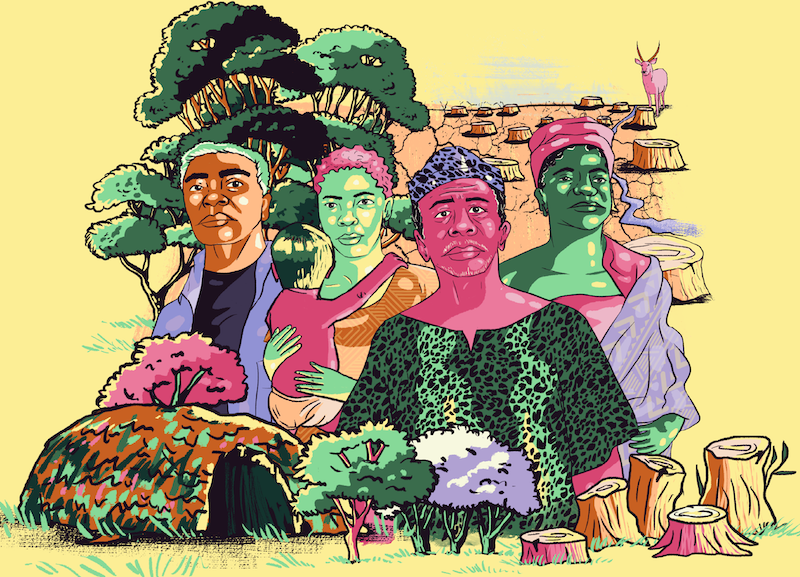“Mediation offers a peaceful alternative to litigation in land disputes, as seen in the SudCam case in Cameroon. By promoting dialogue and cooperation, mediation can help communities protect their land rights and livelihoods.”
Blog by Francis Simeu, TI Cameroon, to celebrate International Human Rights Day
As we observe International Human Rights Day, we are reminded of the importance of upholding fundamental human rights, including rights to land. For millions, land is not just a physical space but a source of identity, culture, and livelihood.
Take the example of Sud-Cameroun Hévéa (SudCam) in South Cameroon. The company's land concessions, granted in 2008, displaced local communities, including the Indigenous Baka people, without their Free, Prior, and Informed Consent (FPIC). Stripped of access to their land and forests, central to their livelihoods and cultural heritage, these communities have faced broken promises, lost resources, and escalating tensions.
But there is a path forward. Mediation offers a constructive alternative to litigation, creating a space for dialogue and understanding where land disputes, like this one, can be resolved more peacefully and equitably.
The SudCam land dispute: A human rights case
For years, SudCam’s operations have been under scrutiny for human rights violations and environmental degradation. Communities lost access to vital resources such as forests, where they hunted, fished, and practiced spiritual rituals. Promises of development made to these communities went unfulfilled, and tensions escalated into protests and blockades. SudCam, armed with government-issued land titles, dismissed the claims of the communities, leaving them with few avenues for recourse.
Traditional legal options often fail in such cases. Litigation is lengthy, costly, and can further entrench divisions between communities and corporations. Mediation, however, offers a more collaborative approach, focusing on dialogue rather than confrontation.
A breakthrough through mediation
In response to mounting criticism, SudCam initiated a dialogue process in 2018, appointing a local organization, APIFED, to assess community needs and draft a development plan. While this was a step forward, it did not resolve the land dispute.
Years later, sustained advocacy and support by Transparency International Cameroon (TI-Cameroon) empowered local communities to articulate their demands more effectively. Starting in July 2024, as part of the Land Rights Now! Campaign, TI-Cameroon engaged with local communities to better equip them in claiming their land rights, while also conducting media outreach to amplify their key asks.
These efforts culminated in a significant breakthrough in November 2024, when SudCam representatives sat down with community leaders and government officials to discuss the conflict, a first step towards direct dialogue after years of tensions.
Why mediation matters
This case illustrates the potential of mediation to address complex land disputes. Unlike litigation, which often polarizes parties and is time-consuming, mediation promotes understanding, cooperation, and the development of shared solutions. For communities in South Cameroon, this approach bridges the gap between their demands (access to ancestral lands, better living conditions, and cultural preservation) and corporate accountability.
Mediation also opens the door to capacity building. SudCam suggests that the next steps could include training corporate staff on human rights, integrity and ethics and empowering communities with skills to design development projects. These steps are promising in terms of building longer term sustainability to prevent future conflicts and ensure agreements are respected. This should not exclude close monitoring to guarantee successful progress of these initiatives.
The SudCam case demonstrates the potential of mediation to resolve land disputes fairly and inclusively. As we commemorate International Human Rights Day, let us remember that land rights are human rights, and that mediation can be a powerful tool to protect them.

